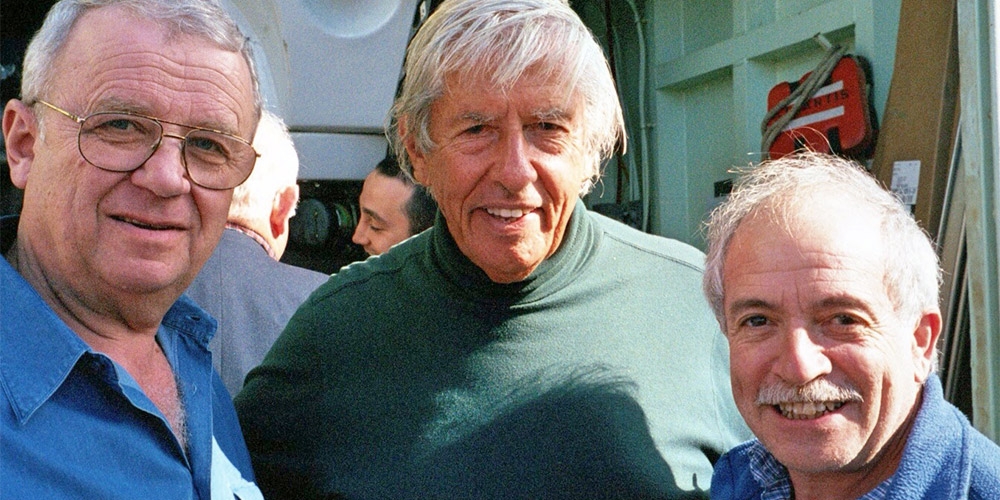“He loved his students, and he loved engaging with them, and sharing his ideas.”
—Sarah Craven, speaking of her father, John Craven
A Fund in Craven’s Honor
When former dean of marine programs at UH Mānoa Dr. John Pina Craven died in February 2015 at age 90, his family and friends started a fund in his honor. The John P. Craven Marine Education Fund will provide the Marine Option Program with much-needed resources to support student scholarships, student awards, student research projects, and student travel reimbursements to conferences and symposiums – all with the aim of supporting the next generation of ocean leaders.
Research Pioneer
John P. Craven was born in New York City, graduated from Cornell University and later received a master of science degree from the California Institute of Technology, a doctorate from the University of Iowa and a law degree from George Washington University.
Craven began working for the Navy as an applied physicist on nuclear submarine design. During his career he served as chief scientist for the Navy’s Special Projects Office and manager of the Deep Submergence Systems Project. He developed the deep submergence rescue vehicle and was responsible for major projects including the NR-1 nuclear-powered research submersible, Sea Labs II and III, and the Navy’s Large Object Salvage System. Craven developed pioneering techniques to locate objects missing at deep ocean depths, and led historic efforts including the Navy’s successful search for a hydrogen bomb missing in the Mediterranean, the lost submarine Scorpion in the Atlantic, and the sunken Soviet submarine K129 northwest of Hawai‘i. He chronicled some of his exploits in the 2001 book, “The Silent War: The Cold War Battle Beneath the Sea.”
Top Hawai‘i Marine Educator
Following his Navy career, Craven relocated to Hawai‘i to head marine programs at UH. At the same time, Craven was serving as Hawai‘i’s Marine Affairs Coordinator under Governor John A. Burns. Craven quickly emerged as one of the state’s top and well-known marine educators. “Dr. Craven,” as he was known by his students, was a charismatic and beloved professor who taught a wide range of courses over several decades, ranging from “Ocean Engineering” to the “Sea and Society” and the “Law of the Sea.” His teaching extended well beyond traditional classroom instruction, and his students regularly were involved in projects such as building and navigating watercraft, designing and constructing floating cities, snorkeling and scuba diving. Craven regarded these hand-on experiences as essential tools for a comprehensive marine education.
During the 1970s, Craven also was instrumental in establishment of Hawai‘i’s Natural Energy Laboratory of Hawai‘i Authority (NELHA) and the lab at Keahole Point. This facility continues to serve as an outdoor lab for deep ocean energy and related scientific and commercial initiatives. Craven served as NELHA’s board chairman until 1990.
Craven’s interests in using ocean resources for the benefit of global populations led him to establish the Common Heritage Corporation (CHC), which developed innovative and integrated agricultural, cooling, energy and desalinization systems, all of which were dependent on cold, deep ocean water. For more than a decade, CHC sponsored a demonstration facility for an environmentally sustainable habitat in Kona. Crops raised by Craven and CHC included dozens of temperate zone plants, all thriving on a coastal desert with minimal irrigation.
In 1976, Craven was appointed head of the Law of the Sea Institute at the UH William S. Richardson School of Law, a position he held until 1992. As an emeritus professor, Craven continued giving lectures until he was in his mid-80s, nurturing the next generation of marine innovators, maritime lawyers and ocean explorers.
Make a Gift
Questions? / More Information
If you would like to learn how you can support UH students and programs like this, please contact us at 808 376-7800 or send us a message.
